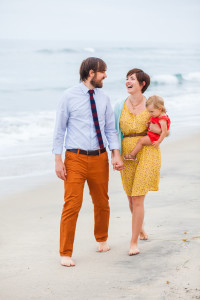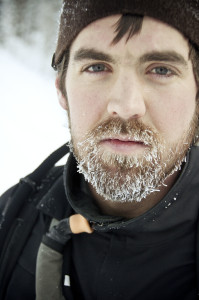As time passes, our culture seems to become increasingly aware of the numerous perspectives and the multitude of experiences that are possible for people in this life. Biological sex, gender, gender identity, gender expression, and sexual orientation are a lot more varied than we have previously realized, perhaps as varied as the wide pallet of skin hues around the world. This realization has helped me process the fact that there may be a reason I have rarely identified or understood the perspectives and experiences of other men. I may be biologically male, but I’m not sure that I fit or perfectly align with the socially constructed concept of what it means to be of the “male” gender. Thus, I don’t feel like a woman trapped in a male body, but I also don’t feel like a Don Juan or a Hulk Hogan either. I may have identified better with women my whole life because I may be somewhere in the middle of the gender spectrum, and I may just be closer to the female side of that spectrum than the male side, and I’m okay with it.

I remain hopeful despite the recent wave of excommunications against members expressing doubt, questioning the patriarchal institution, and advocating for women’s ordination because our church has a long history of members advocating for changes they perceived as unjust, unchristlike, and/or immoral. One such example was the prominent LDS sociologist Dr. Lowry Nelson, he communicated his difficulty in accepting a “doctrine of inequality” that resulted in “the Negroes [not being] entitled to the full blessings of the Gospel,” e.g. Priesthood ordination, after he was consulted over the existence of “pure white people in the rural sections” of Cuba to discover the efficacy of doing missionary work and the feasibility of establishing congregations in Cuba. Another example is the first wife of Orson Pratt, Sarah M. Pratt, who declined an offer from Joseph Smith to become one of his “spiritual wives” in 1841 Nauvoo, that encounter began a series of events that pushed her, her husband Orson Pratt, and their children in and out of the Church several times while Sarah advocated against the practice of polygamy in Nauvoo and Utah.
Additionally, I still hope that changes could be made to make the Church a more equal institution – more reflective of our Heavenly Parents, whom I envision as co-equally ruling over us, their creations. Firstly, having a two year old daughter, I would I like to see “worthiness” interviews for young women conducted by other women (e.g. Relief Society and/or Young Women’s Presidency members) instead of men. Placing older men in a room with younger women to discuss sexual relations, thoughts, actions, experiences, etc. doesn’t seem appropriate in any context. Ever. It carries the possibility of abuse by men who may knowingly or unknowingly develop a desire for such conversations and for creating circumstances for inadvertently causing unintended shame or unwarranted guilt.
Secondly, I would like to see the silence around Heavenly Mother lifted. A survey of historical teachings about Mother in Heaven conducted by BYU Professor David L. Paulsen and BYU student Martin Pulido found that Heavenly Mother may have and does play many roles beyond simply reproduction/nurturing, that the cultural “sacred silence” around Heavenly Mother does not appear to have been advocated for by any General Authorities at any time, and that the historical data from General Authority talks/statements provides a highly elevated view of Heavenly Mother and suggests that she fills a multitude of roles, such as procreator, parent, divine person, co-creator, co-framer of the plan of salvation, and as being generally involved in this life and the next.
Thirdly, I would like to see women be able to serve and/or assist in more callings and roles that don’t explicitly require ordination. For example, reducing gender disparity in leadership callings throughout ward/stake/church hierarchies, by calling women to Sunday School Presidencies, calling men to Primary Presidencies, calling women as Ward Mission Leader, etcetera. I would like to see women be allowed to serve as witnesses in baptisms, mothers be allowed to hold their infants during naming/blessing ceremonies, and women be allowed to, perhaps, serve in other priesthood calling/roles by granting Bishops and Stake Presidents the ability to call women to callings that make use of their Priesthood authority/keys, analogously to the work women do in the temple under the authority/keys of the Temple President.
I love that our Church is run by volunteers, which occasionally leads to problems, but forces us as members and forces our leaders to put a lot of reliance on the Holy Spirit, and allows for the hand of the Lord to be revealed. Henry B. Eyring talked about this sort of reliance when he discussed his experience after being released from a calling. A member sought his advice, and although he initially resisted, he finally listened to their problem and waited for the divine inspiration he was accustomed to receiving, only to have nothing come. I love being able to serve in the Church, and I currently serve in my favorite type of calling – teaching. I love the access to the spirit I end up feeling as I prepare and teach lessons.






